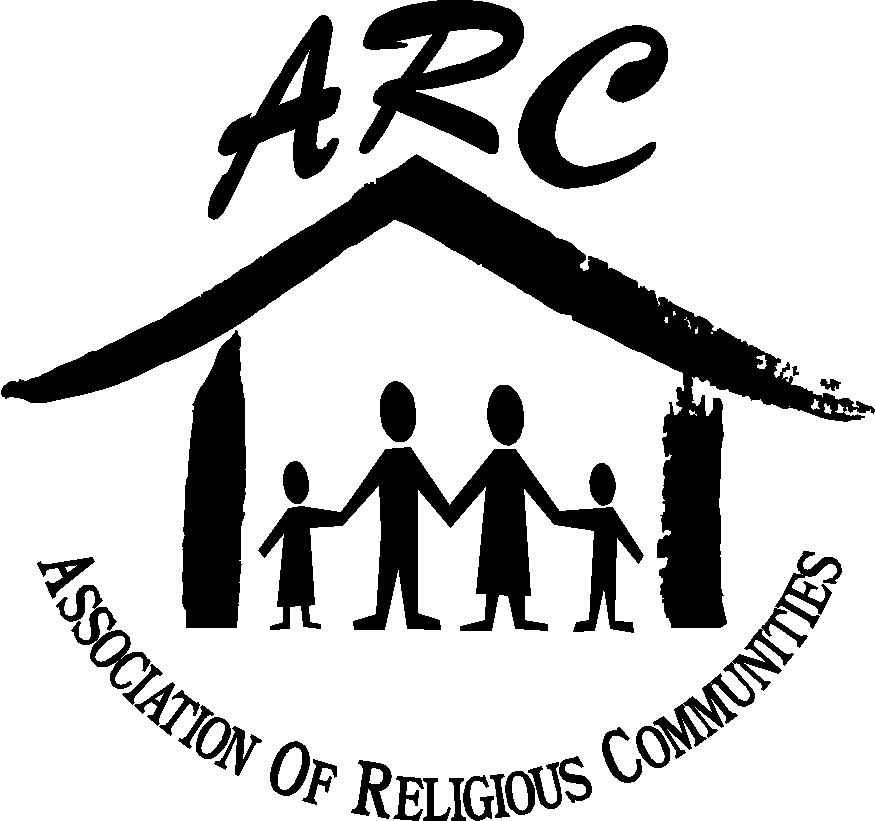
ARC Forum on Faith - Archive 2019







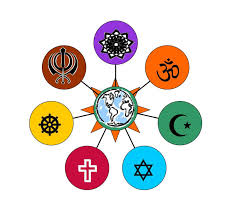
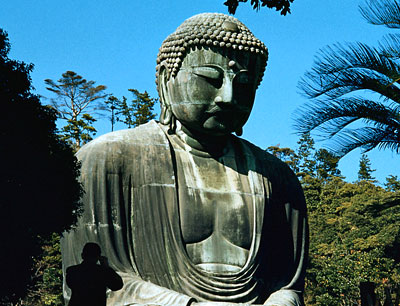
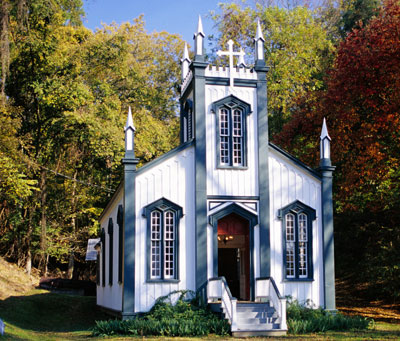


![]()

ARC Forum on Faith - Archive 2019












![]()
SITE INDEX
Top of Page
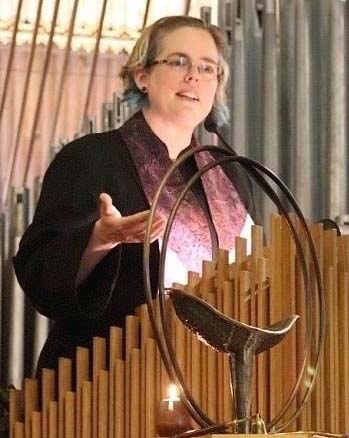
Rev. Heather Starr
FORUM ON FAITH
Connecticut Pastor's trip abroad gives new perspective.
by Rev. Heather Starr
Published: December 21, 2019
Danbury News Times
Just this past November, I had the extraordinary opportunity to travel to the Philippines and to North India. In both countries, we visited with Unitarian and/or Universalist congregations, ministers and lay leaders.
It was our first international trip with our 2 young children. When we returned home on the Friday afternoon after Thanksgiving, blurry-eyed and jet-lagged, our home looked different to me.
The windows looked a little lower than I remembered, the sunlight brighter, and after the hubbub of Metro Manila and Delhi, the quiet Connecticut street where we live seemed ten times quieter. I felt different too - my spirit felt simultaneously stretched and more grounded.
I feel differently now that I have sat in the small front room of the multi-generational home of life-long Unitarians in the Northeastern Indian state of Meghalaya. I shared a home-cooked meal with them and looked at their wedding photos; I watched one of their children demonstrate her mastery of karate while our two children gleefully played for hours with their litter of puppies.
The people we met and the places we went to were not as I had previously imagined they would be - there were not samosas available at every little storefront! Instead, my images now of faith communities thousands of miles away are much more vivid and detailed.
In the UU across the globe, we come together every Sunday to remind ourselves of this: our interconnectedness, our shared commitment to an evolving faith and to the independent search for truth and understanding.
In the Philippines, I absorbed in a new way how we can all become overwhelmed - by the daily demands of living, by the disastrous changes human beings have caused to our shared planet. The vast majority of us are simultaneously distraught and in some kind of numb denial about how completely and abruptly our lives may change in the near future.
Metro Manila is the most densely populated city on Earth. The slow sludge of traffic in Manila costs hours and hours of people's daily lives, but the people we spoke to there said they felt at a loss for how to change the situation. So people simply press on, living their lives as best they can.
We are living in a time when it seems we all press on, while simultaneously feeling like at any moment it could all become unhinged - the routines and resources we take for granted, the global financial system upon which we all rely.
As faith communities, we can work together right now on deepening our shared commitments to practice generosity, empathy, and courage, regardless of what occurs in the coming years.
We can keep bringing forward this collective challenge of our times: the spiritual call to be more humane even as the culture we are steeped in feels more inhumane, more callous and foolhardy, each and every day.
Each morning since we've been back in the United States, I've felt the feelings of relief, joy and delirious gratitude for all the comforts of our lives here slipping away as I step further into the hustle of December. I'm hanging on to these threads of clarity for as long as I can, especially during this month of expectations and letters to Santa.
After our family's epic trip, I feel like every single one of us who wakes up in a warm, dry home with drinkable water at the faucet and an indoor bathroom - some of us even with in-home washer-dryers! - should be celebrating our good fortune every single day, while simultaneously trying to share the wealth in whatever ways we can.
As we move toward the final days of December, let us hold on to this truth: we are already blessed, as Rev. Victoria Safford writes. We already have all the gifts we need.
I believe it is crucial to carve out some time for grateful acknowledgment - whether to light a candle, or to sing out loud the song that is making its way through our hearts, or to pull out the photographs and remember the stories, moments and relationships that anchor our lives.
It is good to be reminded that there is so much about our existence and this world that is inexplicable. When someone or something kindles in us the full-hearted reminder of how lucky we are simply to be alive, we can seize that moment to pause, to breathe, or to spin ourselves around in glee and in gladness. And then we can share that joy and that abundance with someone else.
Rev. Heather Rion Starr, Consulting Minister, Unitarian Universalist Congregation of Danbury, 24 Clapboard Ridge Road, Danbury, CT 06811. minister@uudanbury.org.
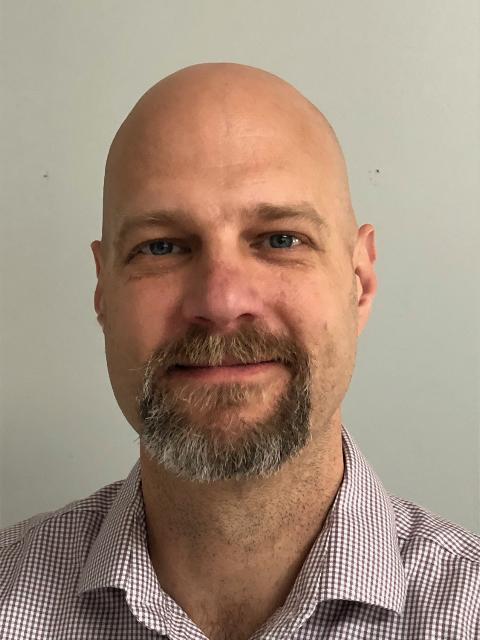
Rev. Chuck Bonadies
FORUM ON FAITH
Rediscovering the lost language of lament.
by Rev. Chuck Bonadies
Published: November 9, 2019
Danbury News Times
Nobody saw it coming. Those who knew Annie described her as healthy 35-year-old mother of three. Yet, underneath the active lifestyle lurked a life-threatening diagnosis that left family and friends in shock.
Both Annie and her community were left to grapple with the mysterious ways of God, in addition to the physical and emotional challenges that lay ahead for them. Where do people begin to call upon God in moments of confusion and pain?
The category of prayer that often speaks to people in suffering is "lament."
Lament is a prayer in pain that leads to trusting God. In Scripture, a lament can be a long prayer, such as the 154-verse book of Lamentations, or a brief cry that expresses grief: "Naked I came from my mother's womb, and naked shall I return. The Lord gave, and the Lord has taken away; blessed be the name of the Lord." (Job 1:21)
Lament takes the form of raw emotions and transparent complaints, as individuals or communities cry out to the Almighty over the brokenness of the world. Consider the words of the Prophet Habakkuk, "How long, Lord, must I call for help, but you do not listen? Or cry out to you, 'Violence!' but you do not save?" (Habakkuk 1:2)
Lament can serve as a kind of spiritual first responder to the grief we experience in this world.
On Saturday, October 27, 2018, with malicious intent, 46-year-old Robert Gregory Bowers entered into the Tree of Life Synagogue in Pittsburgh, PA. Eleven precious lives were lost and seven more people were injured.
Less than 24 hours later, I found myself standing in the pulpit of my church with a broken heart, confused as to why God would allow this to happen. Clergy of all faiths dread these moments - when people look to us for answers we do not have.
It was at that moment that I decided that our congregation would be better served by a lament than a hollow explanation. I set aside the feeling that I needed to offer solutions and took the opportunity to express my confusion and frustration to God through a prayer of lament.
One benefit to prayers of lament is that they never leave us where they find us. As we seek God through tears, we begin to discover a measure of hope. Lament does not make everything right in the world or in our hearts, but as the rising sun burns away the fog, crying out to God works to burn away fear and doubt.
Lament is a call for God to act in our pain despite present circumstances. Through prayer, the Almighty is called upon to heal injustices in the world.
I cannot speak for all religious traditions, but Christians have long felt that the cries of lament from the prophets are fulfilled in Jesus Christ. In the Christmas story, in the birth of God's son Jesus, we perceive God answering these prayers - as Jesus comes into the world to identify with the pain of his people.
In The Revelation to John, the final book of the Christian New Testament, the writer anticipates Jesus delivering a death blow to evil and suffering which brings about the end of lament: "He will wipe every tear from their eyes. There will be no more death or mourning or crying or pain, for the old order of things has passed away." (Revelation 21:4)
When we consider the importance of lament in Scripture, one wonders if the Western church has lost the balance between tears and celebration. Worship services tend to be full of praise songs and prayers that contain the language of hope and triumph while little space is left for lament and crying out to God.
Statistical analysis seems to confirm this inclination. Despite the fact that more than one-third of the songs in the Psalms are classified as laments, only 10% to 20% of the hymns and songs in modern Christian hymnals contain the language of lament.
Could this be an indication that the church in the West has lost the ability to cry out to God and, in the words of the Apostle Paul, "weep with those who weep"? Celebration of hope is essential to faith. Yet, at the same, time, I find myself on a journey to rediscover the lost language of lament.
The Rev. Chuck Bonadies, Senior Pastor, Ridgefield Baptist Church, 325 Danbury Road, Ridgefield, CT 06877. He can be reached at: Phone: 203-438-5751 or Email: Ridgefieldpastor@gmail.com.
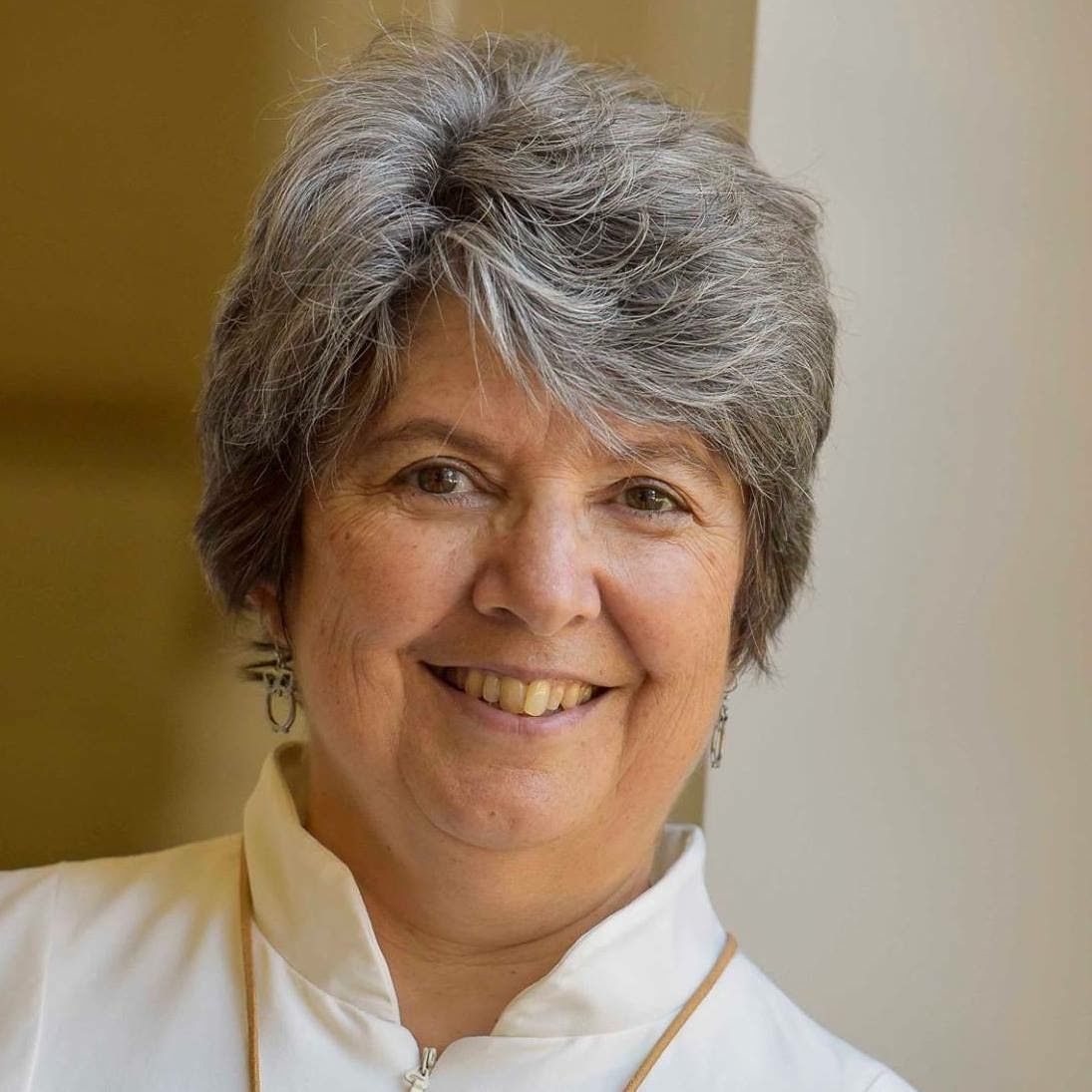
Rev. Maria-Pia Seirup
FORUM ON FAITH
Find God's love in contemplative prayer.
by Rev. Maria-Pia Seirup
Published: November 2, 2019
Danbury News Times
Have you ever been too busy to stop for gas?
Recently I was driving on the Taconic Parkway, which is notorious for gas stations that are few and far between. While driving, I was thinking about the many things I had to do when I arrived home. I did not realize my car's gas tank was nearly empty until I heard a little beeping noise.
Thankfully, the next exit had a gas station nearby. I had also forgotten to stop for lunch, leaving my own fuel tank empty. This distractedness happens to me more often than I like to admit.
Like many of you perhaps, I tend to drive myself hard. When I do that, I know I am at risk of missing important things, such as refueling myself emotionally, physically, and spiritually.
A very effective way for me to refuel is to practice contemplative prayer. This practice dates back to biblical times. Even Jesus often retreated away from the crowds to find a quiet place to be with God, his Father.
Contemplative prayer helps me find my quiet center in God's love. This practice is about being still and listening for God's small voice. It is about being open to the awe and sacredness of life.
As I pray contemplatively, I often experience a refueling of my body, mind, and spirit. With consistent practice, the process has become for me transformational.
Richard Rohr writes extensively about the experience of God's love. This experience holds transformational power. Contemplative practice leads one to unity: unity with God, unity with others and, unity with all creation.
After I have spent time in contemplative prayer, I am changed. I am more aware of God's love and guidance in my everyday life. My viewpoint shifts.
I am more able to see the reflection of God in others, particularly in those who I might find disagreeable. It is hard to disrespect someone or something else when I see God's reflection in them.
I have more power to hold onto my spiritual center in the face of life's challenges. Filled with the Spirit's power, I feel I am more able to resist evil, such as the spreading of untruths, racist rhetoric, violence, and injustice.
I believe we have the option to avoid negativity and to act justly, kindly, and with compassion - however hard it may seem. The Spirit offers the will and power to help ourselves and others navigate rough situations and conduct conversations with civility and respect.
Often, I need to choose to seek my quiet center moment by moment. Choosing to tap into my spiritual center is the only way I can remain grounded and positive in our turbulent and violent world. This transformational practice is where I find hope.
Contemplative practice offers a fuller and kinder worldview. It opens up the possibility to see beyond black and white points of view, winners and losers, as well as who's in and who's out. It helps me be curious rather than judgmental toward those who may not look like or think like me.
When do I find the time for this practice? I am part of a weekly contemplative practice group that encourages me. Practicing with a small group holds me accountable.
Sometimes I set aside specific quiet time by myself usually when I first awaken in the morning. Starting by reading a bit of Scripture prepares me for the practice.
I discovered that contemplative practice comes most naturally to me when I am engaging in creative pursuits such as embroidery, knitting, and quilting. Even while doing mundane household chores as well as while walking the dog, cooking, and exercising, I can practice being in the presence of God.
With intention, I find I can find my quiet center in God's love. It is the intention I put behind the activity that makes it a spiritual practice.
As the holiday season rapidly approaches, I invite you to join me in seeking your spiritual center daily. My prayer for myself and you is this: breathe, be still, be at peace.
May we all find the quiet center full of wonder, hope, and joy.
Rev. Maria-Pia M. Seirup, Associate Pastor, Jesse Lee Memorial United Methodist Church. 207 Main Street, Ridgefield, CT 06877. She can be reached at: mp@jesseleechurch.com.
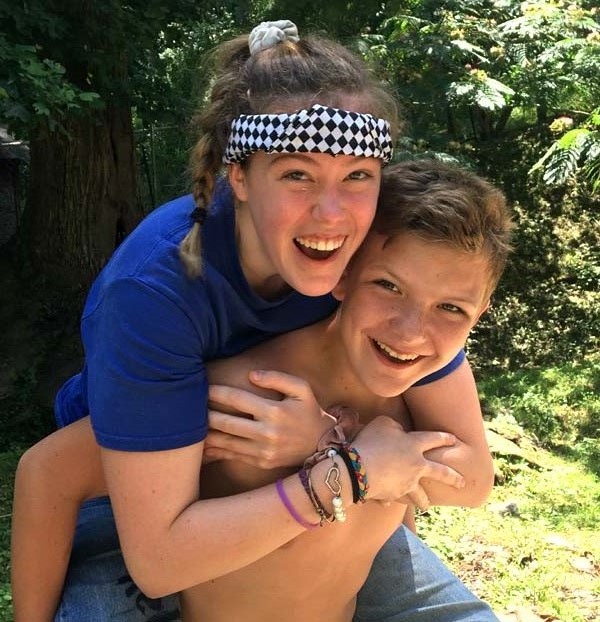
Kelsey Finlay & Kolton
FORUM ON FAITH
Appalachia Service Project.
by Kelsey Finlay
Published: October 26, 2019
Danbury News Times
For 4 years now, I have had a favorite week of summer. Every year, it would intersect with the 4th of July. Every year, I was very far from home. Every year I would drive 12 hours in a van to get there. Every year, for four years, I have participated in Appalachia Service Project.
Appalachia Service Project (also known as ASP) is a Christian ministry dedicated to making homes in the Appalachian Mountains "warmer, safer, and drier."
Since I had done the trip before, I thought I knew what to expect this summer. I would get a crew with my friends. I would meet the family and become close enough where it was hard to separate. I'd have two leaders that I could rely on for any questions. I would get the work done. And, while all this was true, there was one part that was different.
This year the family I was working for was a family of five. There was Mary, her three kids - Trevor (23), Kolton (12), and Cameron (9) - and her mother, April. My crew's work was light this year, flooring in a bedroom and doing small jobs around the house - patching a hole in their bathroom ceiling, finishing up a porch, and putting on a door.
Because of the low workload, I had more time to focus on ASP's true core values, "a relationship ministry with construction on the side." Still, I found that all I wanted to do was to work hard to improve this home and potentially better the lives of this family.
Kolton was just the kid I needed to slow me down.
As most 12-year-old boys are, Kolton was a ball of energy from day one. He wanted to go play shark and minnows, bounce on the trampoline, go fishing in their creek for crawdads, play hide and seek, bike, and so many more activities I can't even list.
This family has had ASP work on their house for 5 years, so Kolton knew I had work to do. He would come into the bedroom and help me nail in trim, get my water if I needed it, and when I needed a laugh, he would attack me with tickles.
Kolton became my ray of sunshine throughout the week. He would randomly place their family's kittens in my lap, jump on me for piggyback rides, and spray me with a water gun. While this may sound annoying to some people, it was what got me through the week.
We had finished up all the work we needed to on Thursday, so Friday was a day for fun. Friday was the day for Kolton.
We finally got to do everything on Kolton's list. My crew and I ran around the lawn for sharks and minnows, jumped on the trampoline, played in the creek, and anything else that Kolton and Cameron wanted to do was up for game.
After 4 long and hot days of manual labor, Friday was a blessing. At one point it was just Kolton and I, walking up his street as he was telling me about school, cute girls, how sad he was that summer was going to have to end, and how sad he was that I was going to have to leave. During that not even 5-minute walk I was utterly at peace.
Saying goodbye to the family this year was one of the hardest things I had to do. During our final farewells, Kolton sat in our van waiting until we had to pry him out - which came only with reluctance, and tears. I must have gotten at least 10 hugs from him in 5 minutes, because he knew I was leaving. My ray of sunshine, and maybe his temporary ray of sunshine, was going back home.
Kolton taught me to be a kid again and have fun in the moment. Life isn't always about work and killing yourself until you complete your goals. Everyone needs breaks, everyone needs laughter, everyone needs a nice hot summer water balloon fight. It's shocking just how much you can learn from a 12-year-old kid.
Kelsey Finlay is a freshman at Towson University studying Theater Design and Production. Kelsey can be reached at: kaf5fin4@gmail.com.
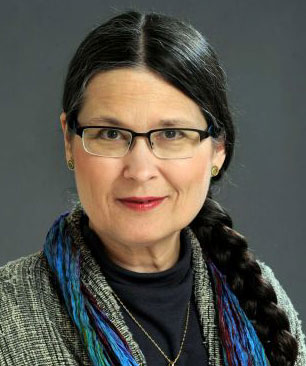
Rev. Smallwood-Garcia
FORUM ON FAITH
What does it mean to be a missionary?
by Rev. Smallwood-Garcia
Published: October 19, 2019
Danbury News Times
I remember welcoming back to our church one of our college students who had returned from a United Church of Christ (UCC) mission trip to Oaxaca where he had worked for more than a week at an orphanage for disabled children. I introduced him to our congregation as our recently returned "missionary" to Mexico. And he was aghast!
"I'm not a missionary!" he insisted. And I laughed it off. Because I understood the picture that probably came to his mind - what most of us think of when we think of the word "missionary." Not a very cool image for a 21-year-old college student in the 21st century.
When you hear the word, do you picture a Bible-thumping preacher? Maybe you have seen one in an old black-and-white movie, tightly buttoned up in old-fashioned Puritan clothes, scolding and shaming a group of grass-skirted "natives" and trying to get them to change their ways?
It's not far from the truth for our ancestors in faith - two young adults from The Congregational Church of Brookfield were on the first Christian missionary journey to the Sandwich Islands, sailing from New Haven on the Thaddeus on October 23, 1819 - almost exactly 200 years ago.
Samuel Ruggles, 25, got to travel with his wife Nancy, but because of the social mores of the times, his elder sister Lucia, 27, had to marry one of her fellow missionaries, Dr. Thomas Holman. Lucky Lucia conceived a child right away, which means she must have had the joy of both morning sickness and sea sickness on the 5-month voyage!
Soon after their arrival on Kauai, she gave birth to a daughter - but after only 4 months, they got into a dispute and got sent home to Connecticut via China - landing Brookfield's Lucia Ruggles Holman in the record books as the first American woman to circumnavigate the globe.
Today, I am happy to say that missionaries don't have to make such long, miserable trips on sailing ships - nor do they excommunicate one another over rigid religious doctrines.
One of the missionaries our church supports, Jenna Forstrom, works in orphanages in Cambodia - helping girls get education and escape human trafficking. She visited us in July - and if you saw her blog photos, in her leathers and helmet, on her dirt bike (often accompanied by her faithful pit bull Bullet), you would lose your image of stern missionary women in corsets and bonnets forever!
On Saturday, October 26th, from 10-11:30am our church will host a visit from The Rev. Michael Joseph, who has been a missionary in Colombia since 2007. He is the co-director of The Peace Commission of the Evangelical Council of Colombia (CEDECOL), which offers pastoral support to churches and people in life-threatening situations. With the recent political violence next-door in Venezuela, his peace-making mission and work with refugees is vital in the region.
jSo although being a missionary has changed a lot over 200 years, in many ways, all of us in our local church could consider ourselves missionaries - in that we work together to fulfill the commandment of Jesus that we "love one another." (John 115:17) Or, to put it another way, as Jesus quoted his Hebrew scripture, "love your neighbor as yourself." (Leviticus 19:18)
Love of neighbor is at the heart of our church's mission. Our Church in Society Committee organizes us to give to our wider church as well as our local community. Our Refugee Resettlement Ministry has helped to house and orient a half dozen refugee families from West Africa, Iraq, and Syria over the past 12 years.
We have annual summer mission trips for our junior and senior high youth groups - and our adults go on mission trips too. Our Women's Mission Trip goes to Rhode Island every January to serve (in the spirit of The Rev. Dr. Martin Luther King, Jr.) on the 3-day MLK Holiday weekend.
But what we call our church's "high holy days" are the weeks leading up to our annual Yankee Fair. That's when we do all the planning, crafting, baking, sorting of donations, and staging of various "booths" that use every available space on our 10-acre church campus on fair day.
We feel it's worth it, because we still think like missionaries - giving half of all the money we raise to worthy mission projects. This year, our mission fund recipients are Brookfield Cares,
Building Homes for Heroes, and Interserve Cambodia (where Jenna serves with her dog Bullet).
You are welcome to join us at our Yankee Fair today, from 8am to 3pm. You can be a one-day missionary too!
Rev. Bryn Smallwood-Garcia, Senior Pastor, The Congregational Church of Brookfield (UCC), 160 Whisconier Road, Brookfield, CT 06804. 203-775-1259 (x304) or bryn@uccb.org.
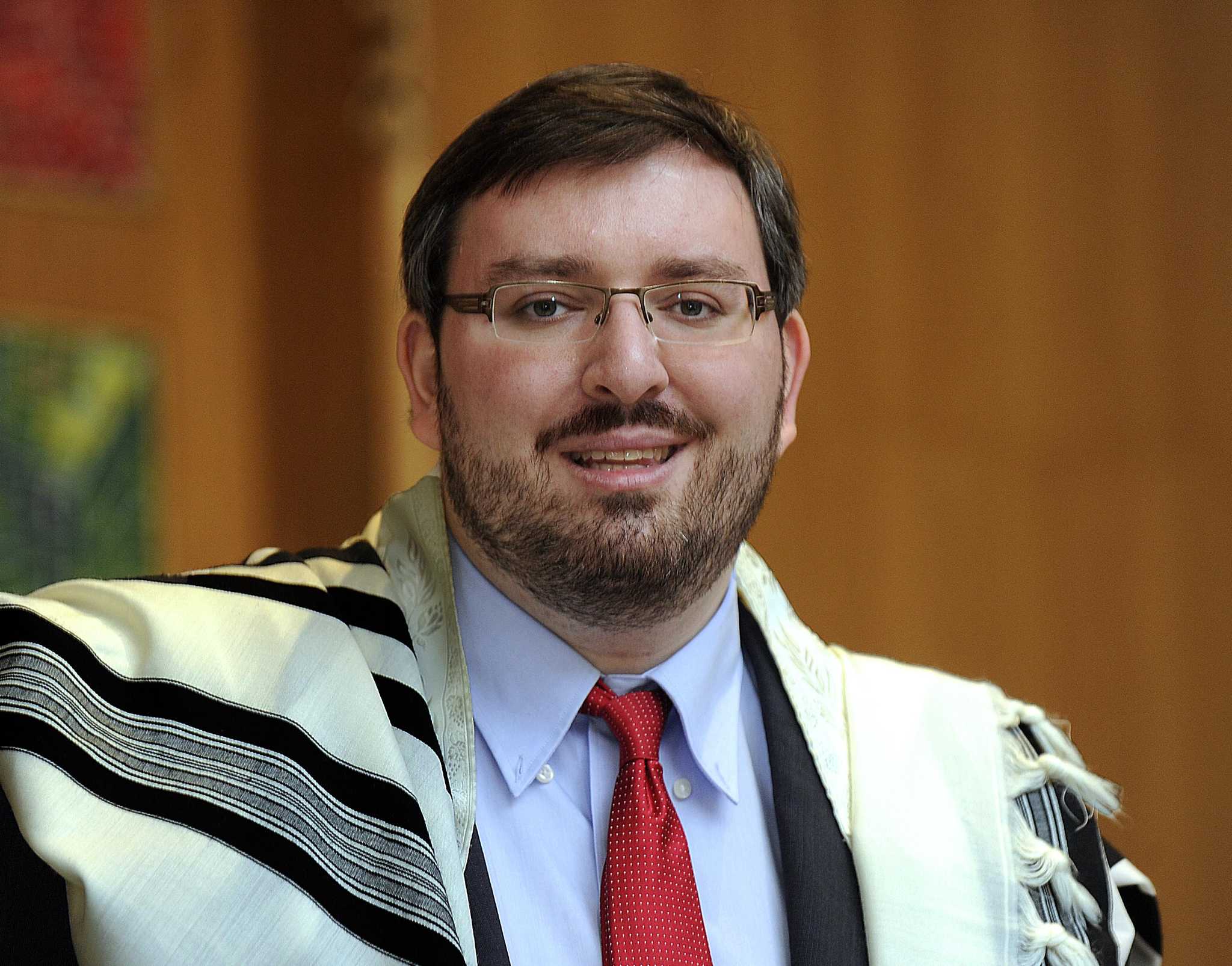
Rabbi Stefan Tiwy
FORUM ON FAITH
Sukkot: Are you going to vanity fair?
by Rabbi Stefan Tiwy
Published: October 12, 2019
Danbury News Times
"To every thing (turn, turn, turn) there is a season (turn, turn, turn) . . ."
Having just made it through the High Holy Day season with Rosh HaShanah (the Jewish New Year) on September 29-30 and Yom Kippur (the Day of Atonement) on October 8-9, Jews all over the world are turning right around to celebrate the next holiday, Sukkot, which begins October 13 and lasts 7 days, through October 20.
There are many layers to Sukkot: It started out as an agricultural holiday, the "Festival of the Gathering of the Harvest," which is also the biblical origin of the later American holiday of Thanksgiving. In English, Sukkot is also called the "Festival of Booths," as Jewish families will build temporary shelters, or "booths" in which to celebrate the harvest by eating outside together.
The ancient rabbis connected the dwelling in harvest booths with the makeshift homes the Israelites lived in during their 40 years of wandering the desert. It is one of the biblical Three Pilgrimage Festivals, during which the ancient Israelites were commanded to travel to the Temple in Jerusalem.
When celebrating Sukkot in our day, it is the custom in some Jewish communities to read the biblical Book of Kohelet, which also goes by the name Ecclesiastes. This book is the reflection of an elderly man (according to Jewish tradition, King Solomon) on the purpose of life, and on how we humans can make the most out of it.
Its famous opening words are already quite the bummer though: "Vanity of vanities, says Kohelet; vanity of vanities, all is vanity." He then continues to enlist the futility of all kinds of goals and ideals that people dedicate their lives to: the pursuit of knowledge and wisdom, of self-indulgence and pleasure, of working and toiling, and of accumulating wealth and honor.
All of these, Kohelet concludes, are vain pursuits and will not lead to anything, as all humans will ultimately share the same fate - death - whether they were wise or foolish, ascetic or hedonistic, hard-working or lazy, rich or poor.
While all this might sound quite bleak, Kohelet has one piece of advice that he comes back to several times throughout the book: "Enjoy life with the partner whom you love, all the days of your vain life that God has given you under the sun, because that is your portion in life and in your toil at which you toil under the sun. Whatever your hand finds to do, do it with your might."
Walking this fine line between the awareness of the fleetingness of our lives, and at the same time still making the best of our human condition is also the message of a famous Jewish tale attributed to Rabbi Simcha Bunim, the great Chasidic master from 19th century Poland:
"Everyone must have two pockets, with a note in each pocket, so that he or she can reach into one or the other, depending on the need. When feeling lowly and depressed, discouraged or disconsolate, one should reach into the right pocket, and, there, find the words: 'For my sake, the world was created.' But when feeling high and mighty, one should reach into the left pocket, and find the words: 'I am but dust and ashes.'"
Throughout our lives, we need to have both slips of paper in our pockets: Sometimes, we need to remember and celebrate our uniqueness, and at other times, we need to acknowledge and recognize our small place in a much bigger world. It is all about balance: We should be neither too high on ourselves, nor too low - rather, we constantly need to re-evaluate ourselves, and adjust accordingly.
So, in a nutshell, Sukkot is the holiday that encompasses and celebrates the universality of the human condition: Dwelling in makeshift booths and exposed to the elements around us, we are reminded how fragile and vulnerable we human beings ultimately are. But nevertheless, we are also called to make the best of our fleeting existence, to be merry and joyful, and find enjoyment in our lives and our work in it.
And that is my wish for all of us today: V'samachta b'chagecha: May we be blessed with moments of joy and happiness in our lives, during the holidays and all year around.
Chag Sukkot Sameach, have a happy and meaningful Sukkot, and an early Happy Thanksgiving as well.
Rabbi Stefan Tiwy is the spiritual leader of the United Jewish Center, 141 Deer Hill Avenue, Danbury, CT 06810, www.unitedjewishcenter.org. He can be reached at 203-748-3355 or rabbi@unitedjewishcenter.org.
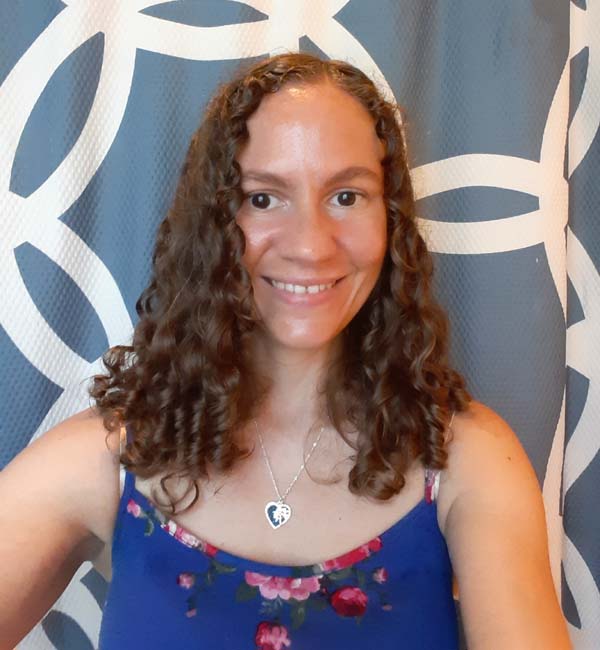
Deacon Tara Gamble
FORUM ON FAITH
God's guiding hand through tragedy.
by Deacon Tara Gamble
Published: September 7, 2019
Danbury News Times
My heart began to race. I could no longer hear or see anything clearly. I was overwhelmed with uncontrollable shaking and tears. I could barely speak. All I knew was that my 10-year-old son's father was dead and I needed to get to my child. The police officers kept saying, "You shouldn't drive in your condition." Why couldn't they understand that a mother can and will do anything for her child in any condition?
My partner agreed to drive as he held back his own tears and tried to distract our 14-month-old daughter. I called my parents to watch our daughter, and we were on our way.
The 4-hour drive north was surreal. I was anxious, angry, and then as numb as a robot. I received several phone calls from the police, the detective, the hospital, my family. I had to approve life-saving surgeries over the phone. I just wanted to get there already!
We finally arrived and everyone warned me about what I was about to see. But no one can prepare you for something like this. I walked into the PICU and my heart sank, my body felt limp, my heart raced. My son was attached to 7 life-saving machines, and had tubes coming out of various places.
Just as I started to fall apart, I saw his face. It was the face of an angel - untouched - not a bruise, a cut, or a scrape on it. His eyes were closed, and he almost seemed peaceful. I knew in that moment that God was present.
I stood next to him and spoke. For the first time since I received the news, I felt human again. I was connected, and I knew he was too. I read to him daily, spoke to him about people and things that he liked. I sat in outward silence, while inwardly I prayed endlessly for his full healing.
Lukas had 17 injuries, and all of them were severe. The doctors could not tell me if my son would live. They said that "with a Glascow Coma Scale of 3, it is a miracle that your son is alive at all." They noted that if he did live, he would have serious lifelong physical and cognitive deficits.
The days that Lukas was in the hospital were treacherous and rewarding, heart-wrenching and uplifting. I experienced a constant state of anxiety coupled with hope. I knew that I needed to have faith to get through it. I soon grew to learn that everything I had was faith.
The hospital is a minute-to-minute environment. One minute your child is stabilized on 6 different medications, 7 different machines, and the monitors are all reading positively. The next minute one machine starts beeping, a fever ensues, your child is not breathing. Stress becomes a way of life.
Prayer and the angels God placed around me gave me hope and increased my faith.
I quit my new job and stayed at the Ronald McDonald House. I spent 12-14 hours a day, every day at the hospital. I only saw my 14-month-old daughter twice.
My parents and grandma came to visit when they could and so did my partner. My best friend came up for a week and others took day trips. I received daily support and encouragement from my FB family, Gofundme, churches, and random strangers.
Many people asked how I was able to withstand everything. My answer was God. I was never truly alone.
My best friend guided me to praise God whenever I experienced anxiety. My mom told me to ask God for everything that I, Lukas, my daughter, and partner needed. I told her that all I needed was for my son to get well enough to come home.
My mom said to aim high and she was right. My faith increased and I truly believed that God would answer our prayers as I prayed.
I believe Lukas avoided 3 scheduled surgeries through prayer. His main femur growth plate was restored through prayer. His brain was fully healed, as evidenced by an MRI. The medical professionals were amazed and could provide no medical rationale for his rapid healing.
Since then, it's been a long journey with countless doctors. Today I can say that Lukas looks and behaves like a "normal" 10-year-old. He has an average IQ and can do all of the physical activities that he used to do.
He misses his father but is now able to smile when he thinks of him. He prays for Daddy to continue to watch over him in Heaven daily. In Lukas, I feel I have a living, breathing example of God's love, power, and mercy living in our home. Praise God!!!
Tara Gamble, Deacon, Central Christian Church, 71 West Street, Danbury, CT 06810. symbafrog@gmail.com.
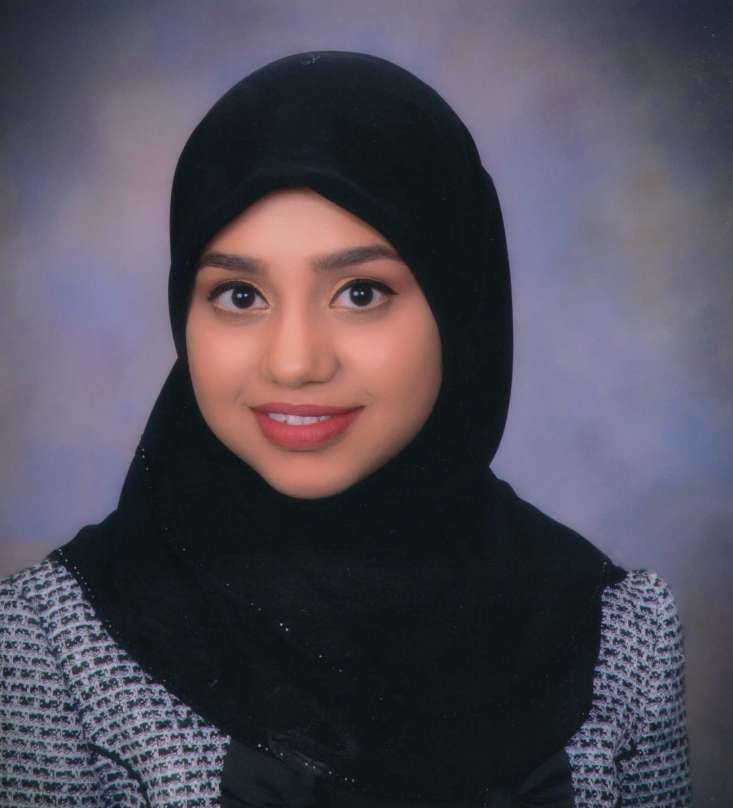
Mariam Khan
FORUM ON FAITH
Humanity, not discrimination, is our uniting link.
by Mariam Khan
Published: July 20, 2019
Danbury News Times
The events of 9/11 were the catalyst for my classmates taking on a decidedly negative attitude towards me. People were holding me, an 8-year-old American-born Muslim, responsible for one of the most heinous crimes to occur on American soil. Not only was my country attacked, but someone else's actions turned me from a citizen into a suspect. They effectively stripped me of my humanity for a crime that I did not commit, all in the name of national security.
Nearly 18 years later, Muslim parents report bullying in K-12 schools at nearly double the rate of Jewish and Protestant children and triple the rate of Catholic children. In some cases, that bullying is from teachers. Daily micro-aggressions are shaping the identity of the American Muslim youth. They are constantly being asked to prove their worth and humanity.
Persistent exposure to trauma, like anti-Muslim rhetoric, takes away your sense of safety. It robs you of your ability to trust, relate and connect, leaving you feeling isolated. Sadly, trauma from microaggressions and bullying are only the beginning. Establishing minority groups as inferior is a gateway to seeing them as a threat to health or safety.
Dehumanization is a mental loophole that allows us to harm others, effectively acting as a precursor to violence. It redefines people by making them seem less than human, or inferior. The process of depriving an individual of human qualities may start as divisive or prejudicial rhetoric, but it can escalate into violent extremism.
Media portrayals of Muslims, immigrants, and other minorities are creating a wave of dehumanization. Distorted representations of American Muslims account for the majority of what Americans know about Muslims.
According to the Institution of Social Policy and Understanding, more than 80% of media coverage about Islam and Muslims is negative, and only 38% of Americans know someone who is Muslim. This minimal exposure to people who may seem different from us creates a breeding ground for harmful rhetoric to become the norm, splitting people into factions.
The "superior" group reassures themselves of their greatness by seeing the other as having inferior morality or intelligence. The rhetoric used tends to reduce people to animals or pests.
One study by Kteily, Waytz, Cotterill, and Bruneau showed participants (mostly white Americans) the scientifically inaccurate picture, "The Ascent of Man," and asked them to rate "how evolved" members of different groups were using a scale of 0 to 100. Participants rated white Americans as being highly evolved, with an average score in the 90s.
Disturbingly, Muslims received an average of 77 and Mexican immigrants received an average of 83 - even though humans across all races and ethnicities have equal potential intelligence and morality. As the Prophet Muhammad, may peace and blessings be upon him, said, "a white has no superiority over a black nor a black has any superiority over a white, except by piety and good action."
Dehumanization can quickly turn from being a prejudicial issue into a precursor for violence. The Council on American-Islamic Relations stated that hate crimes against Muslims rose 15 percent in 2017. The FBI stated that hate crimes against all groups rose 17 percent from 2016 to 2017.
Just 4 months ago in Christchurch, New Zealand, a white supremacist opened fire on Muslims worshipping in their mosques on a Friday, the Muslim holy day, massacring 51 and injuring 49. The youngest victim was three-year-old Mucad Ibrahim. This terrorist act was designed to instill fear in a marginalized community.
That shooting was just one of many acts of violent extremism. On May 12, 2019, during the Muslim holy month of Ramadan, the Diyanet Mosque in New Haven was devastated by a two- alarm blaze that was intentional and incendiary in nature, according to New Haven Mayor Toni Harp.
Dehumanization continues to allow Muslims to be spoken of as terrorists, but also Mexicans as rapists, and African-Americans as thugs. Dehumanization allows the burning of numerous houses of worship, including mosques, synagogues and black churches. Dehumanization allows for the crisis at the border where an immigration policy of family separation disguises cruel living conditions as a deterrent.
But just as we have the mental capacity to dehumanize, we have the ability to forge trust and understanding. I believe we need to engage each other in conversation, seek out diversity in our social circles, and learn more about each other's views and values.
As Martin Luther King Jr. said, "Injustice anywhere is a threat to justice everywhere." Humanity is our uniting link. And I believe our shared humanity will be our greatest strength moving forward.
Mariam Khan is an Islamic Studies teacher and youth mentor at Baitul Mukarram Masjid of Greater Danbury. She is also pursuing her MA in Marriage and Family Therapy at Fairfield University. You can contact her at mariamk101@gmail.com.
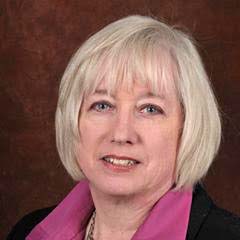
Rev. Pat Kriss
FORUM ON FAITH
Finding your soul in mountains, burgers, diners.
by Rev. Pat Kriss
Published: July 6, 2019
Danbury News Times
Some years ago in the first church I pastored, a tall, athletic 60 year-old member named Bill would periodically take me aside and confess that he wouldn't be attending services the next Sunday because "I'll be worshiping at the cathedral of the mountains."
Of course I knew what that meant. Bill was going skiing and snowboarding. His "cathedral" was all of creation, and its music was the joy that he felt careening down the slopes.
I think Bill had the right idea, and we could all learn from it. As we enter these precious days of summer, we should take the time to find our own "cathedral" - our special place that connects us with our spiritual core, no matter what our faith path may be, or if we follow a path at all.
I believe that spiritual renewal is vital to our well-being. We should not feel guilty about finding new energy to recharge the spirits we may have been neglecting.
Over the last decade, I've noticed we Americans have developed a bad case of "work-ism" - becoming obsessed with laboring longer and more intensely, often into the weekend (as do our high school-age children). It used to be that we worked harder in order to have more leisure time. But no more. Today it seems we are always working to get ahead.
In addition, while our commute to work may be the same distance, it takes much longer given the New England area's increase in people and traffic. Since 1980, commuting time has increased by 15 percent If your one-way commute lasts 26 minutes (that's average), that means you're spending 9 days out of your year just getting to work. How does this help your spirit?
No wonder people prioritize how they'll spend their precious few hours of free time on the weekend. I can tell you that your priest, minister, rabbi or imam - if you have one - is acutely aware of this dilemma.
Faith leaders realize that since our culture no longer assumes people will be attending worship on the weekends, it's easier to choose "not worship" in favor of something "fun," provided you already assume worship is boring. (And if so, when was the last time you attended a worship service?)
I believe it is possible to find real spiritual joy in worship. I believe that connecting with your soul while in your house of worship ought to be fun, ought to be fulfilling. If not, share your impressions with your clergy person to effect change.
Also, connecting spiritually doesn't have to take place just on the weekend. More and more clergy are "taking it on the road" during the weekdays, inviting people to stop by a pub or a diner, and just sit and discuss what's on their mind.
Because of this need, in 2018 First Congregational Church Danbury initiated a "Faith and Foam: meet-up, beginning at 6pm on alternate Monday nights, at Three Brothers Diner. They have been kind enough to let us use their community room.
There's no heavy theology, and anyone can come - people of any faith path or no faith path. It's been amazing to see the ways that our common experiences, our doubts and our beliefs intersect and energize us. Just people together, enjoying a burger or a beer or an iced tea, talking about what's most on their minds at the moment.
Finally, you and your house of worship might want to go out together and find that "cathedral" that nature offers you. Our congregation routinely goes on field trips to see the bald eagles, to watch the swallow migrations or visit an art museum. At First Church we've also invited the public to join us when we've had visits from a live timber wolf or a rehabilitated hawk and eagle, or to come in and take pumpkin carving lessons from a pro.
I believe we need time to replenish the core of our spirits, and we find it most often in God's creations, which includes one another. Here's to you finding your "cathedral" this summer.
Rev. Pat Kriss, Pastor. patkriss@aol.com, 203-744-6177, First Congregational Church Danbury, UCC, 164 Deer Hill Avenue, Danbury CT 06810

Rabbi Ari Rosenberg
FORUM ON FAITH
A respnsibility to let the right prevail.
by Rabbi Ari Rosenberg
Published: June 15, 2019
Danbury News Times
One of the most difficult issues clergy face is whether or not to preach about contemporary issues. We spend all week hearing and talking about immigration, abortion, and gun laws. But God forbid we talk about them from the pulpit, or there's going to be hell to pay.
On numerous occasions, I have been confronted by those who say, "I don't think politics belongs in the sanctuary. When I come here, I just want to be able to escape it all and pray in peace."
As lovely as that sounds, I believe the purpose of religion is not to disengage from our awareness of all the wrongs in the world. If it were, then religion really would be an "opiate of the masses." I wish I had the privilege to provide an escape from the real world, but it's my belief that the God of Justice and Righteousness will not abide it.
I believe religion is not an escape from reality, but a moral imperative to confront reality.
Our responsibility to address the wrongs of the world is no novel idea. In Biblical times, God is described variously as the "God of Justice" (Isaiah 30:18) and "Righteous and Upright" (Deuteronomy 32:4). I believe "God rose to execute Justice," as Psalm 76:10 teaches, "to save all the oppressed of the earth." God isn't listlessly tossing lightning bolts from the sky; God is the advocate of the oppressed, the champion of Justice and Righteousness!
When Abraham was selected as the founder of Western Religion, I believe our mission was revealed: "For I have singled him out, that he may instruct his children and his posterity to keep the way of God by doing what is Just and Right" (Genesis 18:19).
Isaiah directs us, "Learn to do good, devote yourselves to Justice, aid the oppressed, uphold the rights of the orphan, defend the cause of the widow" (1:17). Does that sound like the kind of person who would want the sanctuary to be a distraction from it all?
Jeremiah warns us about the blasphemy of exploiting religion: "You are relying on delusions of no avail. Will you steal...commit adultery and swear falsely. . . and then come and stand before Me in this House which bears My name and say, "We are safe"?-to do all these abhorrent things!"
The Bible makes it clear what God hates, but it also tells us what God loves. Micah teaches, "Do Justice, love kindness and walk humbly with your God" (6:8). Psalm 33:5 declares that "God loves Justice and Righteousness."
To love is the quintessential act of selflessness. And, when we do shift that focus from ourselves to others, as the Prophet Amos teaches, "Justice will roll down like waters, Righteousness like a mighty stream" (5:24).
When Abraham heard God was going to destroy Sodom and Gomorrah, did he sit back and say, "Thank God it's not my back yard"? No! He challenged God saying, "Shall not the Judge of all the earth deal justly?"(Gen. 19:25).
When Moses saw that the Israelites were being oppressed by the Egyptians, did he say, "Thank God I was raised in Pharaoh's palace, and don't have to deal with any of that"? No! He challenged Pharaoh, "Let my people go!"
I do not believe our sanctuaries should become places where we stick our heads in the sand and disengage from all the wrongs of the world. And so, when we are confronted on a daily basis with news about oppressed families torn apart at our borders, women's rights under attack, white supremacist massacres, we cannot stand idly by and turn God's house into a refuge from our responsibility to right the wrongs in this world.
The God of Justice and Righteousness requires not some opiate for the masses, but rather religion inspiring people to be advocates for the poor, the needy, the alien and the oppressed. This is not about showing up a couple times a year to pray in peace. This is about joining a movement to bring peace beyond the walls of the sanctuary.
I believe we have no right to pray in peace until we have done our part to bring peace about in the world. The sanctuary is not a shelter. It is a think tank and a war room. We have battles to fight. Only then can Justice and Righteousness prevail.
Rabbi Ari Rosenberg of the Temple Sholom, 122 Kent Road, New Milford, CT 06776. He can be reached at: 860-354-0273 or www.tsholom.org.
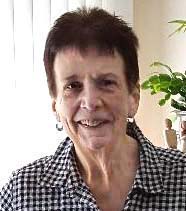
Jo Gabriele
FORUM ON FAITH
Be the positive amid the negative in the world.
by Jo Gabriele
Published: June 1, 2019
Danbury News Times
Lately, I've gotten to the point where watching the news, reading the paper or sometimes even opening emails and viewing posts on social media cause me a great deal of angst. Anger, hatred, and intolerance seem to have become the status quo.
It's not that I live with my head buried in the sand - because I know prejudice among people, races, religions, ethnicities, etc. has always existed, even in biblical times. It's that I feel more than ever in my lifetime, hatred and intolerance have taken over rational thought processes and behavior.
I'll also admit that on more than one occasion I've asked myself, "Where is God in all this" "How can God continue to allow these acts of violence and terror to happen?" Sometimes I wonder what will happen to future generations if we can't get it together as a society?
Finally, if I come to the realization that society as a whole will never get it together, at least not in my lifetime, the question I ask myself is what is my role in the here and now? To answer that question, I turn back to my upbringing and my faith.
When I was growing up, faith was the cornerstone of our lives. Church was where we came together as family and friends to give thanks for the gifts God had provided. Through religious education, we learned the importance of being earthly disciples; and through extending a hand to someone in need, we learned the power of acceptance and compassion.
It causes me to wonder, how we came to stray so far and what must God must be thinking of what's going on in this world? I pondered this for a while, and then God spoke to me and said, "I need you to do your job as my follower on earth."
I am a person of deep faith who was raised Roman Catholic but who now refers to herself as a non-denominational Christian. It was a year-long journey of discovery, compromise, acceptance and change - all of which has brought me a new sense of peace.
Probably the most powerful lesson for me was redefining the meaning of "church." I don't think church is meant to be defined only as the building where one attends services. I have come to believe that each person, each individual disciple, needs to be the church.
What does that mean? Discipleship can be as easy as offering a smile and a simple hello to anyone whose eyes meet mine, practicing random acts of kindness for someone I don't know, listening without judgment when someone just needs to let it out, hugging someone who needs a human touch, or introducing someone to my faith and my church family so they have a sense of belonging.
Being positive has so many more benefits than being negative. As a follower of Jesus, I want to demonstrate to those touched by my actions that there is a tremendous amount of good in this world despite what we see and read in the media.
In the end, these are the things that ground me in faith and help me believe again that good can indeed conquer evil.
Jo Gabriele is a member of the United Methodist Church in Bethel, CT. You can contact her at jogabriele@sbcglobal.net.
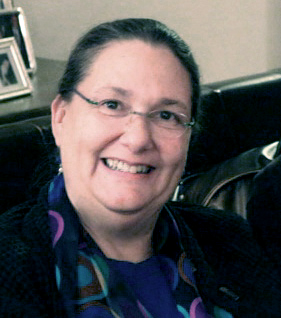
Polly Castor
FORUM ON FAITH
Compassion and love go hand in hand.
by Polly Castor
Published: May 18, 2019
Danbury News Times
In Ridgefield, the clergy association, community members, and First Selectman Rudy Marconi are involved in a town-wide effort to become a "City of Compassion."
More than 70 cities globally, including Danbury, have already affirmed the Charter of Compassion. And while compassion cannot be legislated, I believe that encouraging it can help raise awareness of its power, necessity, and inherent blessings.
Often the idea of compassion gets mixed up with sympathy and pity. I would describe the difference with a metaphor. Imagine someone in a deep hole: pity walks by and is sorry they are down there but does nothing about it, sympathy climbs down in the hole to keep them company, but compassion lets down a ladder so they can climb out.
I think compassion is how we all want to be treated. It is inseparable from the golden rule, which is common to all religions: "Do unto others as you would have them do unto you."
As a Christian Scientist, it is clear to me why compassion is an indispensable element of the moral code that holds civilization together. Far from being a lordly gesture from a superior to someone less fortunate, I believe compassion is actually born of our essential equality as children of God.
In my denomination, we look to the first chapter of Genesis in the Bible to understand ourselves. God is described there as the Creator, and we are the creation. We are made in God's "image and likeness" - all of us without exception designed to be "very good" - complete and blessed, treasured and needed.
I understand this to mean our true nature is God-like (even though we don't always act like it). Also, we refrain from attributing human qualities to God - such as being vengeful, wrathful, punitive, critical, indifferent or judgmental. Instead, Christian Scientists understand God as divine Love - good, benevolent, infinite, ever-present, and all powerful - which leaves no room for anything unlike itself.
As reflections of God, I believe we must know what God is like (and not like), in order to know our own true identity. With God being divine Love, we as the outcome of that must be loving too. To me, this means that at the most fundamental level, compassion, or reaching out in helpful consideration and unconditional love, is our most natural state.
Why then, doesn't it seem that way? I would say this disconnect comes from misidentification; we forget who we (and others) really are. We can mistake ourselves as limited, competitive, callous beings, defending our turf in an unpredictable world.
I think it can be easy to fall into that trap, so I feel we must humbly extend empathy and patience to others who find themselves in that floundering mindset, and strive to model a better way.
It is as if each of us were made as a purely transparent pane of glass. Somehow, mud gets spewed on the window, but the mud is not us - nor is it those we look out upon. However, if we leave the mud on the glass long enough, that lack of clarity affects how we identify ourselves and how we experience the world.
So if I find myself mistaking anyone as inferior, unlucky, or unworthy, I can simply clean up my own proverbial glass, and that remedies the problem. I get out the universal solvent of divine Love and shine up my lens, not only for myself, but for how much better everything else will look.
I've noticed that those who seem to lack compassion need only to realign with their highest purpose, which is to be a transparency for God. I have found that the more closely I live congruent to my original, spiritual origin, the easier it is to include all in that sphere of unchanging, always available, charitable love.
I don't want anyone to see me incorrectly, or treat me unkindly, because of a mired perspective. So I make darn sure my own outlook is as clear as possible. It feels great to scrub up my concept of myself as God's image and likeness, and to remember that good is available and true for everyone else as well.
That's when I've seen compassion bloom, so that I can effortlessly "love my neighbor as myself." With no one left out of the inclusive embrace of divine Love, compassion can be shared joyously and mutually.
Polly Castor is a Christian Science Practitioner and member of First Church of Christ, Scientist, in Ridgefield, CT. She can be reached at PollyCastor.
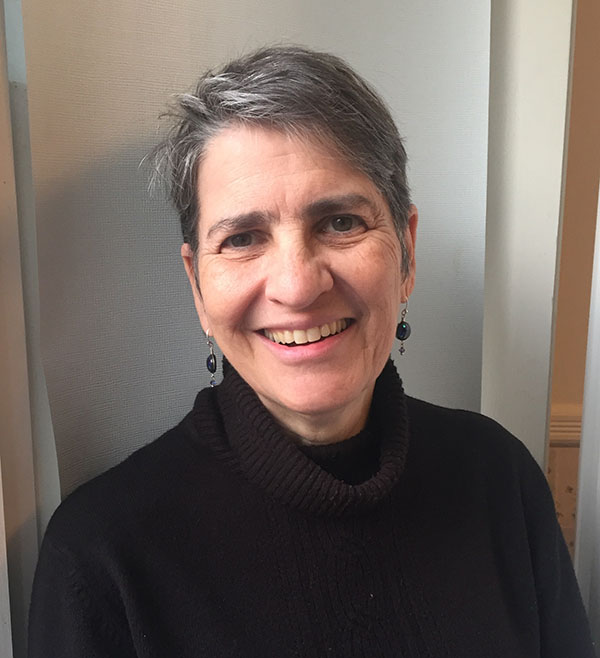
Chaplain Beryl Knudsen
FORUM ON FAITH
Finding God, struggling for mental health.
by Chaplain Beryl Knudsen
Published: May 4, 2019
Danbury News Times
Last year, my sister-in-law died. She had struggled with mental illness for 40 years. Her illness affected her daily routine, work, physical health, finances and, of course, her relationships.
It was not until the last few years of her life that her symptoms were under control. Although still anxious and depressed at times, she was no longer tortured by paranoid thoughts and angry outbursts. She was able to enjoy life. She had friendships. She was able to give to others.
This healing was in many ways due to her getting a medication that worked for her--and sufficient supervision to ensure that she took it regularly. Long before she found stability through her psychiatric medication, however, she found hope through her belief in God.
She attended church with our family. Though there were probably a number of motivations for her attendance, what's important is that she came--and sometimes regularly for a stretch--developing a relationship with God.
She grew to love the services and the rituals. Fasting and feasting were part of her life. The routine of the church year gave her a needed structure. Sometimes she would remind us about an upcoming holy day which we had forgotten!
There were times when it was difficult. It was not easy for me to be in church accompanied by someone who was angry, irrational, and unpredictable. Also, she did not have the ability to develop deep relationships with those at church and found it hard to benefit from times of fellowship.
Eventually, however, those intense periods passed and she could sit in church and enjoy the peace. (And we could too, thankfully!) She was loved and prayed for by the members, who recognized her limitations and appreciated her presence.
I am grateful to God for my years with my sister-in-law. Having a family member who is mentally ill opened my heart and gave me a window through which I could better see the struggle of those with mental illness.
I am a chaplain at Danbury Hospital. For seven years I have facilitated a Spirituality Group on the hospital's Behavioral Health Unit. This weekly group is voluntary, and attendance varies from 2 to 8 people. The ages of attendees range from 20 to 80 years old.
The diagnoses of patients include depression, anxiety, schizophrenia and bi-polar disease. There are patients I have seen repeatedly due to admissions either for flare ups of their illness or a recurrence of symptoms because they stopped taking their medication.
In the group, we focus on quotes I have collected on specific subjects (prayer, healing, inner peace, forgiveness, hope, change). As members of the group come from different faith traditions, the quotes are not specific to one religion. Most quotes come from sources known to the patients (Old or New Testament, Gandhi, Mother Teresa, Nelson Mandela).
A quote doesn't have to be connected with faith to be included - it just needs to generate reflection. Group members choose quotes that speak to them and talk about why they find them meaningful. They all get a turn if they want one.
I never cease to be amazed at the spiritual depth revealed within this group. Patients have sincere questions about their relationship with God, their friends, and enemies. They express their need to forgive, or be forgiven. They search for hope in seemingly hopeless situations.
The amount of love group members extend to each other is inspiring. It's not uncommon for them to share wisdom they have gained from their family, their own spiritual path, or a 12-step program.
Like all of us, mentally ill patients need help remembering the spiritual tools they have gathered in their life (such as faith, prayer, reading, music, service, silence, trust, or fellowship). They need reminders to be open to new ways to reach out to God, to look within, and to love their neighbor or enemy.
Yes, there are occasions when the group is full of patients who have nothing to say and other weeks when someone speaks who makes no sense -- but this is the exception to the rule. I believe that God is love and that God's love is transformative. It is a blessing to be able to bear witness to this love by leading the Spirituality Group, where I get to see members of the group extend love to each other. May God grant them healing and peace.
Chaplain Beryl Knudsen is a member of Saints Peter and Paul Orthodox Church in Bethel and is a chaplain at Danbury Hospital.
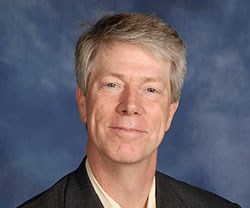
Rev. Bill Pfohl
FORUM ON FAITH
Character is about being genuine.
by Rev. Bill Pfohl
Published: April 20, 2019
Danbury News Times
Several years ago, I came up with a little proverb which helped me manage my disappointments. The proverb is "Character is what you get when you didn't get what you wanted to get."
This "there is gain in pain" mindset has its value, as it helped me to look at difficult circumstances and conclude that these struggles could help me develop resilience and grow as a person. But my son, who served in the Marine Corps, helped me expand this vision. He asked, "If character is what you get when you didn't get what you wanted to get, what do you get if you want character?"
It's true I never wake up in the morning saying, "I need some pain or disappointment today," but I would like to build character. I realized that character doesn"t just come from reactions to negative experiences. Character does sometimes emerge from bad situations, but it also can be pursued.
To me, character is the presence of integrity. To be a person of character means that I am who I am regardless of who others are. For instance, Jesus points out that to truly be a person of love doesn't require the loved ones to be lovable.
"If you love those who love you, what credit is that to you? For even sinners love those who love them. If you do good to those who do good to you, what credit is that to you?" (Luke 6:32-33, NRSV)
This may hurt at times. Some will take advantage of people who are kind without vigilant discrimination. But I believe the cost of loving others only based upon their worthiness (no matter how accurate your assessment) is your soul.
To only love those who love me would mean that I could not be a person of genuine compassion. Instead, I would be exclusively self-interested. Not only that, if I am only looking to love those who love me, I would expect others to act similarly - as if kindness were strictly reciprocal.
Thus, I could come to believe that no one really cares for me either. I might even assume that I am not loved beyond my usefulness.
In Luke, Jesus says, "But love your enemies, do good, and lend, expecting nothing in return. Your reward will be great, and you will be children of the Most High; for he is kind to the ungrateful and the wicked. Be merciful, just as your Father is merciful." (Luke 6:35-36 NRSV)
To love enemies proclaims to me that I believe in love, and I see myself as genuinely loving and lovable. To love adversaries means that I will not surrender my soul to conditions, that there is something more to me than the occasion I am in. I don't merely become an extension of my circumstances, but rather I am who I am.
"I am who I am" is a translation for the name of God in Hebrew. I believe this proclamation affirms that God is kind, period. The ungrateful and wicked received kindness because God is kind.
Of course, I would rather not need mercy. The notion that I have fallen short or am vulnerable fosters insecurity. I like the idea of being in control of my own life and circumstances. But then again, I think it is precisely my vulnerability and the presence of those who have compassion for me that gives me confidence that love is real, that I am loved, and that I can love as well.
If a person doesn't live in this truth, I believe they are missing the very best of life. For what is the reward of living in a "dog eat dog, do unto others before they can do unto you, taking care of Number One" world?
To me, being merciful means that I seek to be a helper and hope that others will be helpers.
I believe that character is seeking what is right, and trying to live right, with the humble awareness that we have the opportunity to seek and live because God is kind and merciful.
The Rev. Bill Pfohl, Jesse Lee Memorial United Methodist Church, Ridgefield, CT.
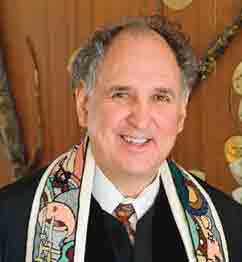
Rabbi Jon Haddon
FORUM ON FAITH
Despite anti-Semitism, reasons for hope.
by Rabbi Jon Haddon
Published: March 30, 2019
Danbury News Times
Jews throughout the world just celebrated the Festival of Purim. Unlike Passover or the High Holy Days, Purim is "relaxed," in the sense that it often involves costumes, spoofs, festive music and hamentaschen pastries. With its exuberance and innocence, it is a holy day without sermons or scolding, without suits or ties.
It is so associated with masquerade, carnivals, candy and even drinking, that it is easy to forget how the truly foreboding tone of the Purim readings can be. The Megillah (the scroll from the Book of Writings in the Bible) is read in its entirety at Purim. Like much of contemporary Jewish life, the themes of Purim, which come through in the reading of the Megillah, are ancient, haunted, and, tragically, still current.
The Megillah is a reminder that hatred of Jews is older than even the word "anti-Semitism" (coined centuries later), and is sanitized compared to the threat of total annihilation that Haman, the villain of the story, posed to the Jewish people. He would have perpetrated a murder of innocent Jews throughout the 127 lands from Persia to Ethiopia.
The Jews back in Haman's time were looking at state-sponsored annihilation, not unlike the Holocaust that occurred in Europe just 75 years ago. And it is still in the political language of Iran at this very moment. As with all anti-Semitism there is no reason, no logic, no justification, for its existence.
For all of our concern with rising anti-Semitism here at home now - from the far right, the far left, and even from members of Congress - it is still important to maintain a sense of historical context. There are even reasons to feel encouraged.
For instance, Jews once feared the Church. Now no one is more fervent or supportive of Israel than Evangelical Christians. Just a generation ago, Russian Jews, who taught the Alef-Bet (the Hebrew alphabet), were sent to prison camps in Siberia; today, Russian President Vladimir Putin, for all his dangers, allows yeshivot (religious schools) and Jewish institutions to exist, if not to flourish, throughout the former Soviet Union.
In our own town of Danbury, I am proud to call Muslims in our community my brothers and sisters, and we work together at the Association of Religious Communities (ARC) in common purpose and friendship, and we mourned together recently the horrible tragedy in New Zealand.
Not long ago, Jews were kept out of universities, hotels, social clubs and neighborhoods. Seldom, if not rarely, is that ever experienced today. And yet, anti-Semitism seems to never, ever, go away. Anti-Semitic crimes top the FBI hate crime chart every year of the 21st century, under every President. And in Europe, anti-Semitism is often violent and dangerous, and it is on the rise.
The Megillah can be interpreted as espousing the use of deep diplomacy to ward off destruction. The two Jewish heroes, Mordechai and Esther, don't take up the sword; they use their wits to defeat Haman. But, at the end of the story - the part that we often find difficult to read - they did take up arms to defend themselves and kill those who rose up against them.
Today, in Israel, I applaud the decision of our President, to add his voice to the annexation of the Golan Heights. I lived in the City of Tiberias, near the Sea of Galillee, where Syrian snipers from 1948 until June 1967 fired incessantly at Jewish settlements, towns and individuals. Only now, under Jewish control, is that area free of terrorism.
In addition, thousands and thousands of Muslim victims of the Syrian Civil War have been treated by Israeli physicians there, in the City of Kuneitra on the border of the Golan Heights. Jews then, and Jews now, never forget our humanity. The Esthers and Mordechais among us today are still taking professional and political risks.
I think the Megillah, promising a happy ending to a difficult story, offers humanity a remedy - unity, spirituality, grace to the poor, to each other, gratitude to Jews for their incredible contributions to the betterment of the world, and the promise that God and goodness are still among us, even if sometimes unseen. The lesson of Purim is for all of us, even now.
Rabbi Jon Haddon is Rabbi Emeritus of Temple Shearith Israel in Ridgefield, CT, and a member of the Board of Directors of ARC. You can reach him at jonrab33@gmail.com.
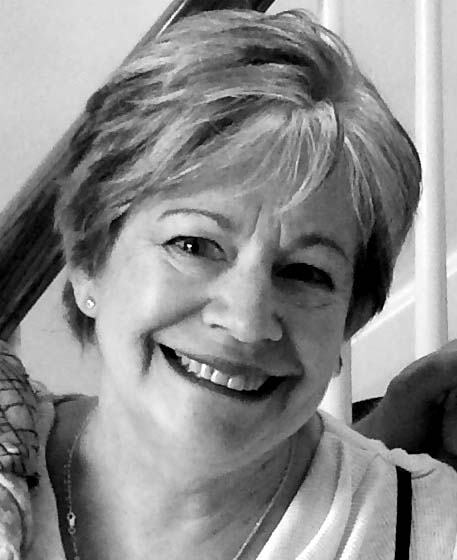
Joyce Schriebman
FORUM ON FAITH
Purim and pastries and a call to action.
by Joyce Schriebman
Published: March 16, 2019
Danbury News Times
In a few days, on March 21, Jews around the world will celebrate Purim - a multi-dimensional holiday, commemorating the triumph of the Jewish people over another threat of annihilation.
The Purim story unfolds in the Biblical Book of Esther with enough twists and turns to satisfy any Shakespeare enthusiast: Young Jewish orphan, Esther, becomes queen to the king of Persia, winning the coveted spot in a beauty contest without disclosing her Jewishness.
This happens after the king's first wife, Vashti, is banished from the kingdom for refusing to parade herself in front of the king's companions. But when Esther's Uncle Mordecai refuses to bow down to Haman, the king's top advisor, Haman persuades the king to murder all the Jews in the kingdom, setting the stage for Esther's dilemma.
What's a girl to do? Approaching the king without being summoned is an offense punishable by death. Remaining silent means certain destruction for her people.
After considerable hand-wringing, prayer, and a three-day fast, Esther marshals the courage to confront the king and turn Haman's evil plan on its head, resulting in Haman's death.
There's more, but this is enough to inspire a holiday that evokes Jewish responses ranging from silly to somber, vulnerable to invincible, and tolerant to xenophobic.
Purim is only a minor Jewish holiday-think Flag Day vs. Fourth of July-so it carries fewer religious obligations than holidays such as Passover or Yom Kippur. But unlike those holidays, Purim is not as ritualized, well-ordered, or constrained.
Purim is loud, rowdy, and flamboyant with carnivals, costumes, masks, and shenanigans. Children dress-up as kings and queens or Wonder Woman, The Black Panther, or Sponge Bob Square Pants. Adults attend grown-up parties with costumes and adult beverages.
Everyone gets into the act on Purim.
In fact, you may have already come across a Purim tradition yourself without even realizing it - like Hamantaschen. These small, triangular, jam-filled pastries are said to symbolize Haman's hat or ears and are, for some inexplicable reason, carried by many bakeshops year-round. Look for them the next time you're in a bakery. Better yet, try one!
In synagogues, the Book of Esther is read from a scroll called the Megillah-a Hebrew/Yiddish word you may have heard in pop culture that's designed to end long-winded conversations, as in, "Don't give me the whole Megillah!"
During the Megillah reading, whenever Haman's name is mentioned, listeners shake noisemakers called groggers, drowning out Haman's name with the din. Pasta boxes are often used as noisemakers and donated to food banks after the holiday in keeping with the Purim custom of giving to the poor.
To add to the festivities, some synagogues produce Broadway parodies called Purim spiels, which encourage congregants to view the story through an amusing, contemporary lens.
But Purim is not all fun and folly. It's also a serious holiday about concealment, opposition, and power.
Vashti would not be intimidated and refused to reveal herself when the king issued his humiliating demand. Esther hid her Jewish identity from the royal court. Haman professed to be a wise counselor but was deceitful, constructing plans that eventually turned upside-down.
It seems to me that, in our little corner of Connecticut, you and I see each other largely through our differences-gay/straight, Republican/Democrat, Christian/Muslim/Jew. And yet our lives touch every day.
Rabbi Daniel Polish says holidays like Purim and Mardi Gras are marked "by a raucous atmosphere, the excessive consumption of intoxicants, masks and costumes" and both fall before "perhaps the major religious observance of their respective traditions [Passover/Easter]."
These are just some of our connections, hidden in plain sight. Like little pastries in bakery cases. Like "the whole Megillah."
In the Book of Esther, God's name never appears in the text. God is hidden. The miracle of the Purim story is not a divinely orchestrated parting of the sea. It's the uncommon bravery of a common person.
Esther is one of the greatest female protagonists in the Bible-her name appears more than any other woman's name. Esther grapples with the consequences of inaction. Then she acts heroically.
Purim is about the capacity of ordinary people to do extraordinary things. It's about acting in the face of fear. And it's about speaking truth to power.
This year I hope the Purim story inspires us with the confidence of Vashti and the courage of Esther. And I hope people today in positions of leadership will be moved by the examples of both women to stand up for truth and justice.
Joyce Schriebman Founder, My Brother from Another Mother. She can be reached at:www.MyBrotherFromAnotherMother.org or at joyce@MyBrotherFromAnotherMother.org
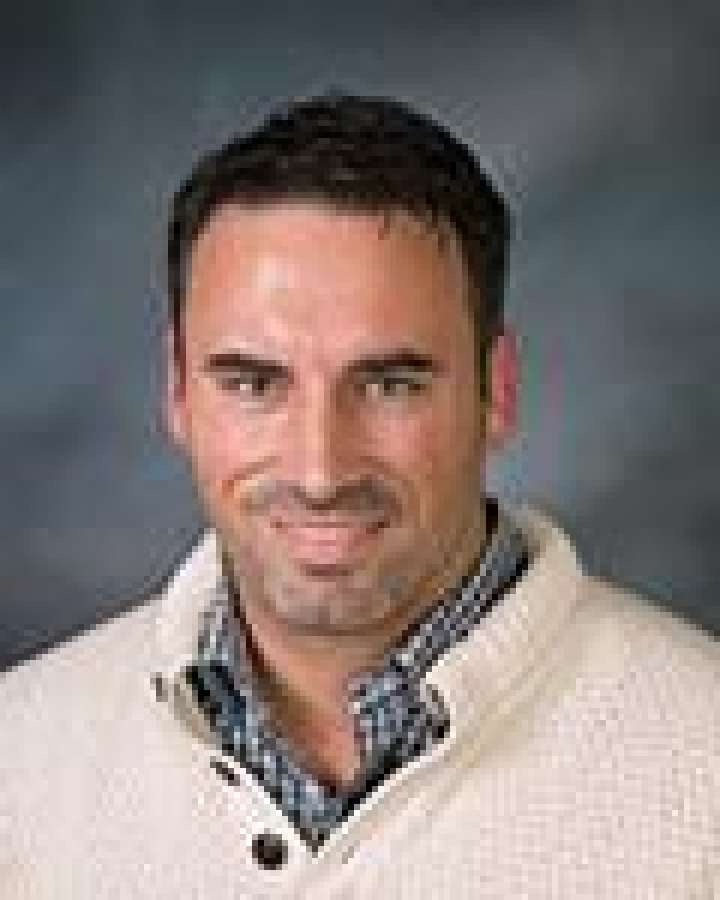
Rev. Stephen Tickner
FORUM ON FAITH
What fasting during Lent reveals.
by Rev. Stephen Tickner
Published: March 2, 2019
Danbury News Times
On Wednesday, March 6, many Christian churches begin one of the most holy times of the year, the season known as Lent. Simply defined, Lent is the 40 days, not including Sundays, that lead to the celebration of Christ's resurrection on Easter Sunday.
The number 40 is symbolically important. It marks the time Moses spent on Mount Sinai waiting for God to give him the Ten Commandments, the days it took the Prophet Elijah to travel from the wilderness to Mount Horeb (another name for Sinai), and the amount of days Jesus spent in the wilderness before beginning his public ministry.
In the Christian Church, Lent represents our 40-day journey in the wilderness with God.
For me, Lent is a time to deepen my relationship with God. It is a time of self-reflection, prayer, and listening. One of the most valuable spiritual disciplines that allows me to accomplish this is fasting.
Fasting is part of the Lenten tradition. Modeling Jesus' fast in the wilderness, many Christians give up something for Lent. Whether it is a food item or a change of behavior, many Christians partake in some sort of fast.
Fasting is a practice that is common in many different faith traditions - including Islam, Judaism, Hinduism, as well as many others. Why is fasting so powerful? For me there are three reasons.
First, it reveals idols I might not be consciously aware of.
Richard Foster writes about fasting in his famous book, Celebration of Discipline. "Fasting reveals the things that control us, he says. "We cover up what is inside us with food and other good things, but in fasting these things surface."
I was confronted with this just recently.
I had traveled to Phoenix in order to take part in a spiritual retreat with other pastors in my denomination, the Christian Church (Disciples of Christ). It was a time that was meant to provide a moment of spiritual rejuvenation and renewal. While this did occur, it also led to the discovery of one personal idol - my phone.
As a part of our retreat, we were directed to engage in 24 hours of silence. While it wasn't mandated, we were encouraged to include the silencing of our technology and social media.
For me, staying silent was not an issue, but staying off my phone was. Impulsively and without thought, I would find myself about to open my email. I would experience phantom vibrations of a phone that was nowhere near my pocket. And I found myself making up silly excuses for the need to carry my phone with me.
In short, I realized how much unconscious control my phone has over my life. My phone had become an idol in my life.
Whether its food, technology, or something else, fasting reveals what I truly long for. And in this longing, I find out where much of my daily energy is consumed, often unconsciously.
Second, fasting allows me to be more present to hear from God.
In a strange flipping of the script, fasting somehow enhances my senses. Whenever hunger or longing takes place, I am reminded why I am fasting and my attention goes back to seeking the presence of God.
Many social leaders have used fasting in this manner. One such leader was César Chávez. As the leader of the United Farm Workers, Chávez would never make a decision without engaging in a fast beforehand.
"Once I am on a fast, I am on a different level," Chávez wrote in his autobiography. "There is . . . there is a force there. I don't quite know what it is."
Third, and finally, fasting creates in me a greater sense of empathy.
I am very fortunate to have a roof over my head and food on my table. However, I realize that not everyone is afforded these same gifts. When I fast, I am reminded of the many in this world that go without food, without health care, and the many that do not have their basic needs met on a daily basis.
While I think compassion for others should be on my mind every single day, fasting allows me to develop a sensitivity to those who are suffering in the world around me.
Fasting is a powerful tool that is embedded in the Lenten tradition. When used wisely and safely, it can transform my wilderness experience into a transformative moment experiencing the presence of God.
Reverend Stephen Tickner is the Pastor of Central Christian Church of Danbury. He can be reached through email at centralchristiandanbury@gmail.com or by phone at (203)748-3020.

Rev. Bryn Smallwood-Garcia
FORUM ON FAITH
Beware of White Privilege.
by Rev. Bryn Smallwood-Garcia
Published: February 16, 2019
Danbury News Times
I have to admit, for the first week of this year's Black History Month, it's been hard to keep from screaming. How much more willfully ignorant and awful can people be?
Not only did two of Virginia's top leaders have to admit to wearing blackface in the 1980s, both of these otherwise highly educated white professionals - Governor Ralph Northam, a pediatric neurologist, and Attorney General Mark Herring, a lawyer - are just learning enough black history to figure out why that is wrong. Governor Northam now knows he has "white privilege" and is committed to helping other white people learn that too. If he can do it, so can we.
All you need to start your lesson in white privilege is abundant in February: snow. Snow serves as an apt metaphor, I think, for our sin as white Christians, because so many of us are essentially "snowblind" to our privilege. Especially if we are white but economically disadvantaged, we are prone to outright deny it: "No one gives me any privilege! I work hard!"
So White Privilege Lesson 1 is: Don't get mad; it's just weather. Don't get defensive or try to deny it. It's just snow. Or as Jesus might say "the (freezing) rain falls on the just and the unjust." (Matthew 5:45) In other words, being white is not bad in itself. No one blames you for your skin color. But it is unsafe for everyone else if you pretend it means nothing.
White Privilege Lesson 2: White is not a neutral color; it's not the same as red, yellow or black. White is "pure as the driven snow," an archetypal symbol for holiness in European Christianity. It's too deeply embedded in our imagery and theology to be ignored. This means most churches white Christians enter will be filled with (historically inaccurate) icons of white Jesus.
White Privilege Lesson 3: Whiteness is hard to see against the backdrop of our dominant white culture. If we are covered in whiteness, we may struggle to pick it out, like finding a white sedan in a snowy parking lot. White privilege is usually invisible, because with it, nothing bad happens.
What whiteness means most often is we white folks get to blend into every "white space" and no one questions our reason for being there. So when your black or brown friend tells you a story about being followed around by a store clerk, you may be tempted to think they were seeing things. Please don't add to their spiritual injury by questioning their honesty - again.
White Privilege Lesson 4: Whiteness makes everything move forward easier. It's like your life came with snow tires. White privilege means we can travel through most small towns without ever feeling unsafe or uncomfortable. It means that we don't have to pray we don't get pulled over, or if we do, that we make no sudden moves, keep our hands in view, and speak calmly and politely at all times - even if the officer is rude and questions our right to be there.
White Privilege Lesson 5: Clear your own windshield first. Or as Jesus put it: "Why do you try to remove the speck from your neighbor's eye when there is a log in your own?" (Matthew 7:4) Don't waste time justifying yourself or naming the racism of others. Most white people have at least one terrible white relative and one black friend.
Instead, try to clear your life of words or actions (or sins of omission - like failing to advertize a job opening) that may unintentionally contribute to society's often invisible but slippery under-layer of racism. Ask your black friend to check your blind spots. It's what safe drivers do.
White Privilege Lesson 6: Always clear the top of your car. To justify your disregard for historical racial injustices by saying, "I am not a backward-looking person; we just need to move forward" is like being the driver who refuses to clear deadly ice chunks off the roof.
You may not be responsible for the 4 inches of snow that piled up overnight, any more than you were responsible for 400 years of slavery, but you still should work hard to educate yourself and others about the need to chip away at what has become culturally solidified, and dangerous. And if you love your neighbor, you want to keep it from causing harm to those who come after you!
Rev. Bryn Smallwood-Garcia, Senior Pastor, The Congregational Church of Brookfield (UCC), 160 Whisconier Road, Brookfield, CT 06804. She can be reached at: Bryn@uccb.org or www.uccb.org or 203-775-1259.
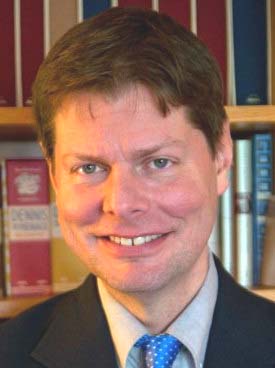
Rev. Michael Cobb
FORUM ON FAITH
Working toward unity on LGBTQ stance.
by Rev Michael Cobb
Published: February 2, 2019
Danbury News Times
It is no secret that ours is a country divided along all sorts of lines. We have been for some time, but recently what had been beneath the surface has become more overt.
The question is, where do we go from here? Who do we understand ourselves to be, and what do we want to stand for? These are not trivial questions, and I believe they deserve attention - both in our wider society and in our personal lives as well.
Faith communities are often microcosms of society, and my own United Methodist Church (UMC) is no different. Right now, we are at the cusp of a new chapter in the life of our worldwide denomination of Protestant Christianity, so we find ourselves wrestling with these same questions in the context of faith.
For the first time in our history, we are going to meet outside of our usual 4-year meeting cycle, from February 23 to 26 in St. Louis, Missouri, in hopes of coming to consensus on longtime disagreements about ministry to and the rights of LGBTQ persons. Although our deep divisions on this issue have been awkwardly deflected for many years, we seem to have reached a tipping point where most of us believe the time has come to decide.
The Stonewall riots that started our nation's gay rights movement took place in Greenwich Village in 1969, one year after the formation of the UMC, and our response to this next phase of the civil rights movement has been the subject of disagreement ever since. Statements of belief have been refined, amended and debated endlessly.
Over the last 15 years, other American mainline Protestant denominations have wrestled and debated and now have come to terms with their position statements. Most of these other denominations have determined that they will no longer discriminate against LGBTQ persons.
The process was not easy, but now many LGBTQ Christians can be married to the partner of their choice regardless of gender, can serve openly as clergy, and can otherwise be fully part of church life. During that same time, marriage equality has become the law in all 50 states, and our nation remains uneasy in not just this but in all matters dealing with human sexuality.
Equal rights for the LGBTQ community, like many of the social movements that have been a part of our national faith conversation over past decades, have not been embraced by all Christians in the U.S., much less in other parts of the world. Because of the worldwide reach of the UMC, with churches in Africa and Asia, coming to this decision will be challenging.
Even so, in spite of our disagreements, I think most of us in the UMC still hope to retain our unity, but this will be hard to accomplish in our pluralistic nation, let alone among a wide diversity of countries and cultures. So what will we do?
I don't know what my church will decide when it meets in St. Louis. As one person, there is only so much I can do there. But I do know that by this time next month, the UMC will have completed an international gathering of clergy and laity and will begin working to sort out what happens next.
No matter what happens, I hope all of us are able to decide these things for ourselves, personally - and in a national atmosphere of distrust, each one of us can choose to treat one another with dignity and civility. As for me, my own faith is one that embraces the holiness innate in all people, excluding none. It demands that I do what I can to uphold the sanctity and dignity of all people, both in my church and in my community.
Faith communities are indeed microcosms of society, with all the interpersonal challenges that come along with that. And I believe that our churches, like our nation, are at their very best when they strive to put into practice our founding beliefs - that all people are created equal, with rights given to all by our Creator.
Although we are still working on living up to that ideal, I pray that no matter what happens, either nationally or in the church, that we never stop working towards unity, and the dignity of all people.
The Rev. J. Michael Cobb is pastor of The Rowayton United Methodist Church in Rowayton, CT, and is a housing coordinator at the Association of Religious Communities (ARC). He can be reached at housingfirst@arcforpeace.org.
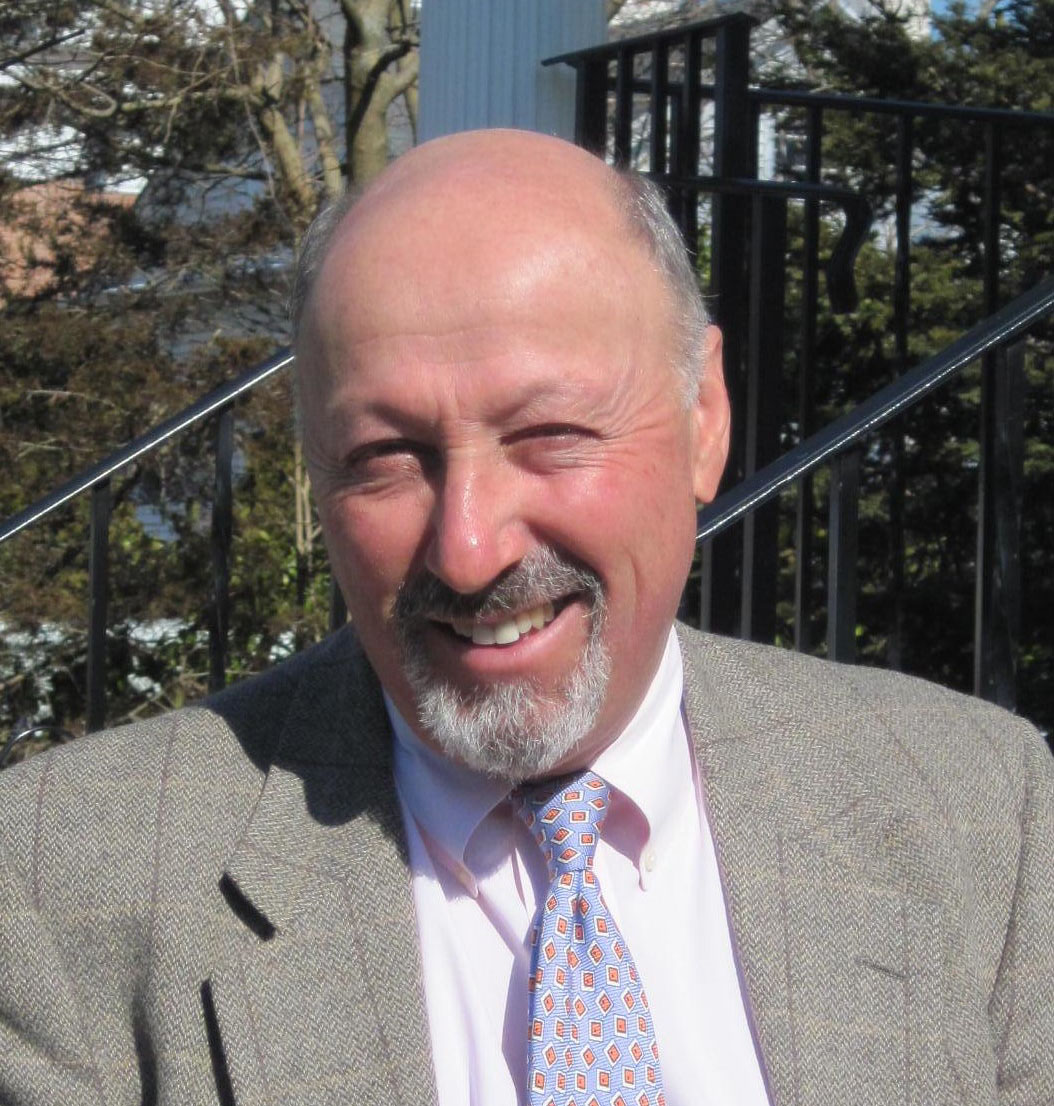
Neil Marcus
FORUM ON FAITH
My faith not based on one religious belief.
by Neil Marcus
Published: January 19, 2019
Danbury News Times
Faith. The dictionary defines it as "confidence or trust in a person of thing." It is a belief that is not based on proof. As a student and practitioner of the law for the past half century, I have been focused on proof, so it is a bit ironic I have been asked to write a "Forum on Faith" column.
In doing this, I can unleash myself from being slavishly focused on proving something and turn to writing about my own confidences and trusts.
Thankfully, I am doing it in a "forum," which is defined as a court of tribunal (where proof is usually an essential element) and a meeting place for discussion of matters of public interest.
I have read many articles written over the years in this column and I have observed that many of the authors write about faith in the concept of organized religion. It is often through formal religious institutions and practices that we express our faith - in God, in humankind. Our belief (faith) may be that a good deed or a life with moral purpose will be rewarded in some spiritual way.
However, I find that in a world filled with news of daily atrocities, some natural (earthquakes, floods, fires) and some conceived by human action (genocide, mass shootings, domestic violence) the pursuit of spiritual reward becomes more and more challenging.
Despite discouraging events around me, I have come to realize that, after all these years, I do still have faith. It is as simple as the confidence I have when I am playing tennis and a shot is hit over my head, Eddie or Joey or Sanjay or John or Hani will be there to get it. That we come from different religious and cultural backgrounds is of no import, since we share a common faith - trust and confidence.
I trust that when people are hungry and needy there will be provisions to feed them at Daily Bread Food Pantry at St. James Church, Dorothy Day House, ARC's La Comida or one of the other food pantries in greater Danbury. If they are homeless shelters are there to provide a bed or help finding low-income housing. These programs are supported and operated by people who come from many different religious backgrounds all sharing a common faith.
My own faith as I have come to understand it is not based on any specific belief that has been ingrained in me over my years of attendance at the United Jewish Center or my years as a student and now a trustee of the Wooster School. I do credit my teachers, Rabbi Jerome R. Malino and the Rev. John D. Verdery, and the religious institutions they each headed (one Jewish and one Episcopal), as a source of my early exposure to ethics and morality.
I have learned that good deeds and a life with moral purpose have their non-spiritual rewards. They can be realized in the common courtesies and decencies with which we treat each other in our daily lives. This has become increasingly difficult in a world where basic civility appears to be disappearing from society, and electronic communication has replaced more intimate forms of human contact.
On a personal level, there is no greater joy than looking back to letters hand written nearly 60 years ago, from my teachers at the Wooster School. They were sent to my parents twice each year with messages about my development and progress not only as a student but as a young man, friend, and teammate. The preservation of these letters was an unexpected gift from my mother to me. This type of interpersonal communication reflects an intimacy and civility that seems to have all but disappeared from our world today.
When I graduated from Wooster in June 1965, the Rev. Verdery penned a note on the inside cover of the leather-bound copy of the New Testament (given to every graduate) with an inscription: II Corinthians 7:16. Looking it up, I found these words "I rejoice, because I have perfect confidence in you."
Brevity is the soul of wit. I realized this was his expression of faith, in me and in what I had learned during those school years. But I also realize now that this simple verse still speaks to my trust and confidence in what I cannot prove.
So for me, "faith" is more than its dictionary definition. It is a source of joy; because I believe we can all experience faith when we overcome our prejudices and fears about each other.
Neil R. Marcus, Attorney at Cohen and Wolf, P.C., 158 Deer Hill Avenue Danbury, CT 06810

Polly Castor"
FORUM ON FAITH
Strive to be influenced by divine Mind.
by Polly Castor
Published: January 5, 2019
Danbury News Times
When discussing the power of habits, Mary Baker Eddy, the author of "Science and Health with Key to the Scriptures," wrote about a historical person named Kaspar Hauser, who had been incarcerated in a dungeon, where neither light nor sound reached him.
Commenting on his release at age 17, Eddy writes, "The light which affords us joy gave him a belief of intense pain. His eyes were inflamed by the light. After the babbling boy had been taught to speak a few words, he asked to be taken back to his dungeon, and said that he should never be happy elsewhere. Outside of dismal darkness and cold silence he found no peace."
This story hints at how much the human mind is affected by its environment. Eddy asks whether the human mind is influenced by an erroneous, temporary, baser mentality, which she calls mortal mind, or by the divine Mind, which she identifies as God.
Mortal mind is frail and inadequate, easily swayed like a pendulum between good and bad, and seemingly at the mercy of circumstances, whereas the divine Mind is clear and capable, with perpetual, good judgment.
When it comes to improving our habits with New Year's resolutions, we usually try to goad, shame, or coerce this fickle mortal mind into doing better. Yes, it can be reeducated in better directions, but the results of this are spotty at best, and unlikely to be permanent, which can be frustrating after a lot of effort.
Christian Scientists are taught that we are not defined by mortal mind, but instead, we have a higher, purer consciousness. We watch and pray to have the same Mind in us that was also in Jesus. Additionally, we take the first chapter of Genesis at its word when it says that we are made in "the image and likeness of God."
That"s why, as a Christian Scientist, I believe our true consciousness is the "image and likeness" of the divine Mind. We are not the image and likeness of mortal mind, which constantly swings between good and bad.
If the divine Mind has no bad habits, limitations, false beliefs, mistaken education, or erroneous motivations, we don't have to have them either. From this standpoint, these things are not so hard to correct, and I believe we have a divine right to be free from these enslaving habits.
As human beings, we all make mistakes, so I believe we all suffer from some metaphoric version of Kaspar Hauser's dungeon experience. But I don't believe improvement comes by forcing ourselves to change through human will - so often the suggested approach.
Instead, I believe results come from loving, honoring, and being grateful for who we actually are, as we were made by God, as opposed to the mess that mortal mind claims we are. I think we should work to remove the impositions pressed upon us by mortal mind.
For example, I never thought of myself as athletic, because throughout my childhood, I was repeatedly told that I was not. I unwittingly accepted this as a fact about myself, until it dawned on me recently that I didn't have to believe it.
I could try to remedy this situation by willing myself into going to the gym more often in the coming year, or I could have compassion on myself. Using the principles of Christian Science, I could instead correct all the false beliefs that were dumped on me in the past about not being athletic. I have decided to choose to banish those false beliefs from continuing to influence and dominate my life.
This is a very freeing approach. If I believe that God is strong, active, and in perpetual motion, I know I can be too, by expressing the divine Mind. I refuse to accept any longer that I am sedentary or disinclined to exercise. I can reverse this misconception of my true selfhood, since I am actually the vibrant, energetic, robust reflection of all that God is.
So even though it might look like I'm recommitting to going to the gym more, my actual New Year's resolution is to become more alert to removing the false beliefs and limitations I have been educated to accept about myself.
From what limitations, impositions, or false beliefs can you decide to free yourself in the coming year?
Polly Castor is a Christian Science Practitioner and member of First Church of Christ, Scientist, in Ridgefield, CT. She can be reached at PollyCastor@gmail.com.